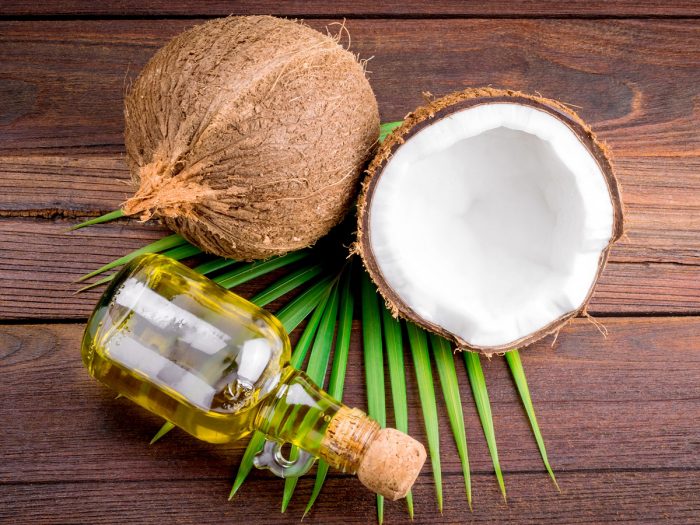Pure coconut oil is known for its pleasant fragrance and taste, antioxidants, medium chain fatty acids (MCFA), and beneficial vitamins. Coconut oil is a widely known and used substance. Pure Coconut Oil is often used as edible oil as well as for external and industrial applications. Everyone should be well aware of the source, uses, and benefits of this type of coconut oil since it can be so beneficial to human health. Let’s just summarize some of the important information through some questions and answers to make sure that everyone is on the same page about this wonderful oil.
What is Pure Coconut Oil?
Theoretically and ideally, pure coconut oil is pure, natural, unadulterated coconut oil that is free from herbal extracts and artificial or synthetic flavors, colors, medicines, or any other chemical additives. It may or may not be refined, but it must not be bleached nor deodorized, as these two processes involve chemical treatments.
How Can You Identify Pure Coconut Oil?
Here I must admit that there is hardly anyone who can distinguish pure coconut oil from an adulterated one just by their appearances. The reasons for this are obvious since they look exactly the same. However, that still leaves two more of your senses, the tongue, and the nose. Coconut Oil has its own characteristic smell. Smell it and if you find anything but that signature coconut scent, you can be sure that it is not pure.

Coconut oil is used for cooking as well as skincare. Photo Credit: Shutterstock
Regarding the taste, there are two cases to consider. If the pure coconut oil is not refined, then it may have some taste of coconut left in it due to the presence of some bigger colloidal particles that still remain in it. On the contrary, refined pure coconut oil should be tasteless. There is, of course, one more way to tell the difference, which is to trust the certificate that the company selling this oil furnishes. Therefore, it is always safest to go for the reputable and trusted brands.
What Types of Adulterations Are Used?
Common adulterations that are used in coconut oil are other cheaper vegetable oils, as well as natural or synthetic flavoring agents.
Uses of Pure Coconut Oil
Culinary Use
Pure coconut oil has been in use as an edible oil for centuries, mostly in coastal areas, where coconuts grow in abundance. This is a highly stable oil, unlike other vegetable oils, and does not break down easily. This gives a very nice taste and fragrance to the food prepared with it.
Massaging Oil
Pure coconut oil makes a great massaging oil since it is absorbed through the skin very easily.
Hair Oil
There cannot be a better oil for hair than pure coconut oil. People have been using this oil for ages and its benefits on hair are a proven fact.
Cosmetics
Pure coconut oil is an integral part of numerous shampoos, body lotions, soaps, and other cosmetic products.
Medicinal Use
Pure coconut oil has a number of uses in externally applicable medicines, such as ointments and lotions. It is also used in various internal medicines.
Industrial Use
Pure coconut oil is also used as a lubricant in some high precision machines.
Benefits of Pure Coconut Oil
A great deal has been said and written about the benefits of this oil, and we will summarize them below.
Health Benefits
It lowers bad cholesterol levels, raises good cholesterol levels, is good for the heart, fights infections, takes care of the skin, and is very good for your hair. [1]
Other Benefits
Being a very stable oil, it does not spoil or break down easily by heat, enzymes, or microbial action.
That is why it does not go rancid easily. It is used less in cooking and is therefore rather inexpensive.
How about some fish fried in coconut oil this evening? Not a bad idea!
